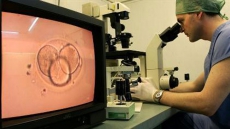A high-fat diet also appears to prompt normally bustling immune cells in our brain to become sedentary and start consuming the connections between our neurons, a new study has found.
However, going back on a low-fat diet for just two months may reverse this trend of shrinking cognitive ability as weight begins to normalise, researchers said.
"Microglia eating synapses is contributing to synapse loss and cognitive impairment in obesity," said corresponding author Alexis M. Stranahan from Medical College of Georgia.
"On the one hand, that is very scary, but it is also reversible, meaning that if you go back on a low-fat diet that does not even completely wipe out the adiposity, you can completely reverse these cellular processes in the brain and maintain cognition," he explained.
The study provides some of the first evidence of why fat is bad for the brain.
The trouble appears to start with too much fat in the body producing chronic inflammation, which stimulates microglia to have an autoimmune response.
Microglia, like macrophages in the body, are known for their ability to ingest trash and infectious agents in the brain, and their highly acidic interior gets rids of it, which helps support the function and health of neurons.
But as mice get obese, their microglia seem focused on overeating.
"Normally in the brain, microglia are constantly moving around. They are always moving around their little fingers and processes. What happens in obesity is they stop moving," Stranahan said.
"They draw in all their processes; they basically just sit there and start eating synapses. When microglia start eating synapses, the mice don't learn as effectively," Stranahan explained.
The study was published in the journal Brain, Behaviour, and Immunity.




